With one season finished or almost finished and the next one only months away, it is important to stand back and take stock of the business and all of its individual components.
This could mean checking out machines, spray stocks, fertiliser stocks, stocks of standard machine spare parts and getting essential farm records up to date.
Getting winter ready for any enterprise involves a number of very basic practices. Many are about preventing problems from happening but there should also be time taken to consider both the winter and the year/years ahead.
Machines
Many of the actions on tillage farms will hinge around machinery. It’s a chance to get basic maintenance jobs done between two busy seasons. Things like antifreeze, oil changes, checking electrical and light fittings, etc, are among the basic things that one needs to do at this time of year.
Check that all water-cooled engines have adequate antifreeze present. It may take a bit of time to let out some coolant to replenish the antifreeze, but it is time well spent compared with having to replace a cracked engine block.
Read the label on the antifreeze to check that the concentration you are using is more than adequate to cope with the lowest temperatures you are likely to experience. This means having to know the liquid volume that your cooling system uses.
Risk of frost damage is also a reason why all sprayers and components on sprayers need to have antifreeze in any liquid. That means having antifreeze in the water in all parts of the sprayer’s equipment.
Get water plus antifreeze into the tank and the circulate it through all the plumbing on the sprayer.
Get this liquid into the booms, the section plumbing, pressure control units, pressure gauges, filter housing and the pump itself.
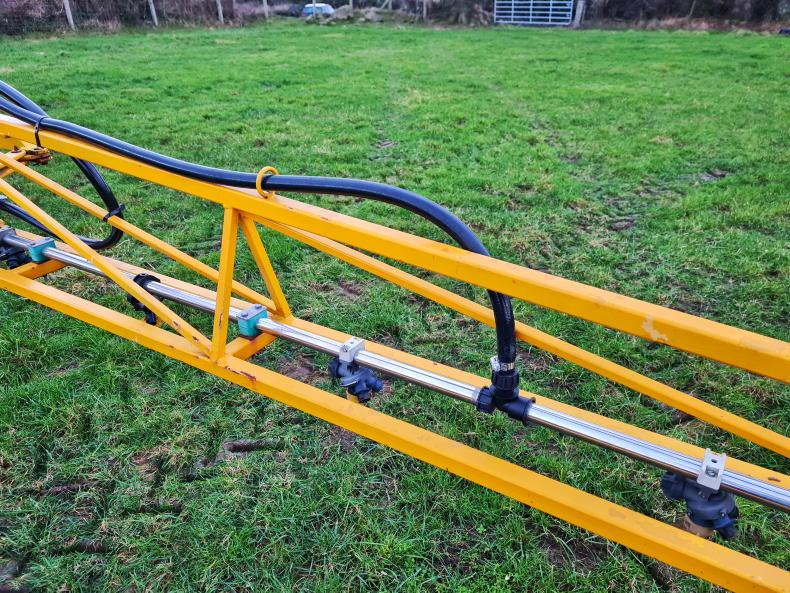
Make sure that the antifreeze gets out into the full length of the booms.
Any element of a sprayer that carries liquid can be damaged by frost, so it is important to have antifreeze in the mix. A burst hose may be more of an inconvenience than a huge cost, but it may not be seen until the next day it is about to be used and it could prove to be a costly delay fixing it then.
Maintenance for spring work
Basic machine servicing is an important element of preparation for the season ahead. You may be doing this yourself or getting someone else to do it – the important thing is that it gets done.
This will include basic machine servicing, oil changes, replacing worn parts, etc, but it might also include some bigger jobs that could cost time and money if you get a breakdown in the busy season.
Basic repairs on implements are equally important. Check the degree of wear on all soil-acting equipment to ensure that it is in top working order for spring work.
Check sheds
While not confined to winter, one of the common problems associated with wind is damage to buildings. For this reason, it is essential to check on the integrity of all buildings.
Doors are always a particularly big risk, especially swinging doors
Things like loose sheeting on sheds or poor mounts on doors can lead to significant structural damage in the event of high winds.
Remember, these problems cannot be repaired during a storm and sheets of metal flying around can prove deadly.
Doors are always a particularly big risk, especially swinging doors. Check that they cannot blow off their hinges, etc. Also, can anything be done to reduce the risks posed to people if such doors need to be opened during high winds.
Other things
Other things that need to be done ahead of winter include rodent control and the exclusion of birds from grain stores.
It is important to be both careful and vigilant when laying poison for mice and rats in terms of risks to farm pets and to predatory birds, etc.
All poisons should be concealed and affected rodents should be collected and disposed of.
There is no easy way to keep birds out of grain stores but you must try. Look for any obvious holes in the sheeting, replace what is necessary and close up around the doors with a fine net or fill holes with expanding foam.
Out in the fields
With so much rain falling, it is inevitable that there will be ponds of water on fields.
There is little that can be done about many of these but it can help if you can open a little channel to let the surface water away into open drains.
Do this when ponds first appear on headlands – leaving them there is likely to result in the loss of a patch of crop.
Soil testing is another job that should be done at this time of year so that you have the results back in time to plan spring crop fertilisation.
Samples should be taken after a few days of soakage.
Take samples to reflect the known variability in fields – they may uncover some of the reasons for the variability. Remember, a sample must be no more than four years old to be valid.
With one season finished or almost finished and the next one only months away, it is important to stand back and take stock of the business and all of its individual components.
This could mean checking out machines, spray stocks, fertiliser stocks, stocks of standard machine spare parts and getting essential farm records up to date.
Getting winter ready for any enterprise involves a number of very basic practices. Many are about preventing problems from happening but there should also be time taken to consider both the winter and the year/years ahead.
Machines
Many of the actions on tillage farms will hinge around machinery. It’s a chance to get basic maintenance jobs done between two busy seasons. Things like antifreeze, oil changes, checking electrical and light fittings, etc, are among the basic things that one needs to do at this time of year.
Check that all water-cooled engines have adequate antifreeze present. It may take a bit of time to let out some coolant to replenish the antifreeze, but it is time well spent compared with having to replace a cracked engine block.
Read the label on the antifreeze to check that the concentration you are using is more than adequate to cope with the lowest temperatures you are likely to experience. This means having to know the liquid volume that your cooling system uses.
Risk of frost damage is also a reason why all sprayers and components on sprayers need to have antifreeze in any liquid. That means having antifreeze in the water in all parts of the sprayer’s equipment.
Get water plus antifreeze into the tank and the circulate it through all the plumbing on the sprayer.
Get this liquid into the booms, the section plumbing, pressure control units, pressure gauges, filter housing and the pump itself.

Make sure that the antifreeze gets out into the full length of the booms.
Any element of a sprayer that carries liquid can be damaged by frost, so it is important to have antifreeze in the mix. A burst hose may be more of an inconvenience than a huge cost, but it may not be seen until the next day it is about to be used and it could prove to be a costly delay fixing it then.
Maintenance for spring work
Basic machine servicing is an important element of preparation for the season ahead. You may be doing this yourself or getting someone else to do it – the important thing is that it gets done.
This will include basic machine servicing, oil changes, replacing worn parts, etc, but it might also include some bigger jobs that could cost time and money if you get a breakdown in the busy season.
Basic repairs on implements are equally important. Check the degree of wear on all soil-acting equipment to ensure that it is in top working order for spring work.
Check sheds
While not confined to winter, one of the common problems associated with wind is damage to buildings. For this reason, it is essential to check on the integrity of all buildings.
Doors are always a particularly big risk, especially swinging doors
Things like loose sheeting on sheds or poor mounts on doors can lead to significant structural damage in the event of high winds.
Remember, these problems cannot be repaired during a storm and sheets of metal flying around can prove deadly.
Doors are always a particularly big risk, especially swinging doors. Check that they cannot blow off their hinges, etc. Also, can anything be done to reduce the risks posed to people if such doors need to be opened during high winds.
Other things
Other things that need to be done ahead of winter include rodent control and the exclusion of birds from grain stores.
It is important to be both careful and vigilant when laying poison for mice and rats in terms of risks to farm pets and to predatory birds, etc.
All poisons should be concealed and affected rodents should be collected and disposed of.
There is no easy way to keep birds out of grain stores but you must try. Look for any obvious holes in the sheeting, replace what is necessary and close up around the doors with a fine net or fill holes with expanding foam.
Out in the fields
With so much rain falling, it is inevitable that there will be ponds of water on fields.
There is little that can be done about many of these but it can help if you can open a little channel to let the surface water away into open drains.
Do this when ponds first appear on headlands – leaving them there is likely to result in the loss of a patch of crop.
Soil testing is another job that should be done at this time of year so that you have the results back in time to plan spring crop fertilisation.
Samples should be taken after a few days of soakage.
Take samples to reflect the known variability in fields – they may uncover some of the reasons for the variability. Remember, a sample must be no more than four years old to be valid.






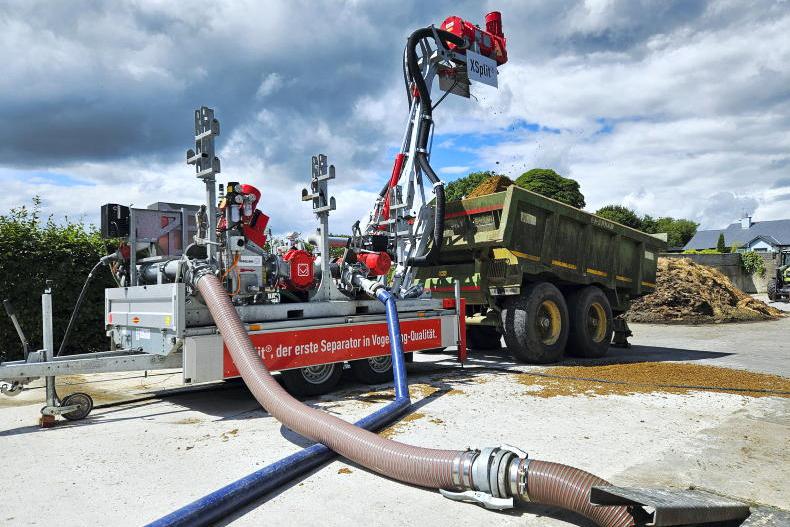
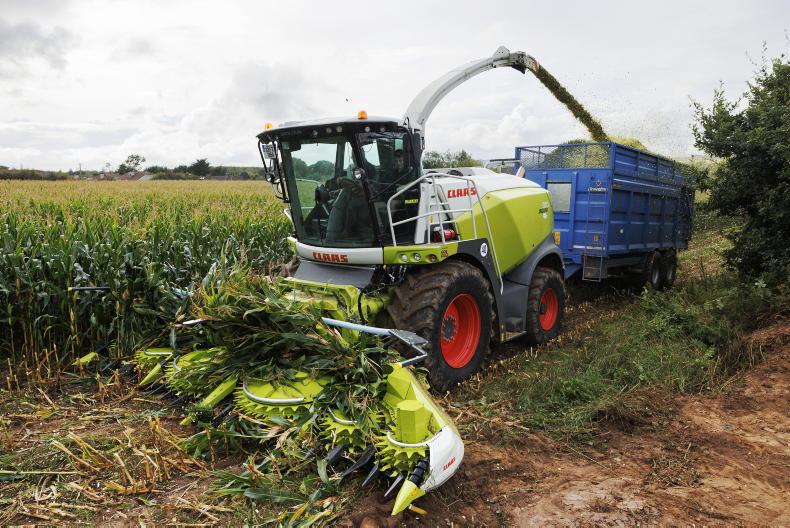
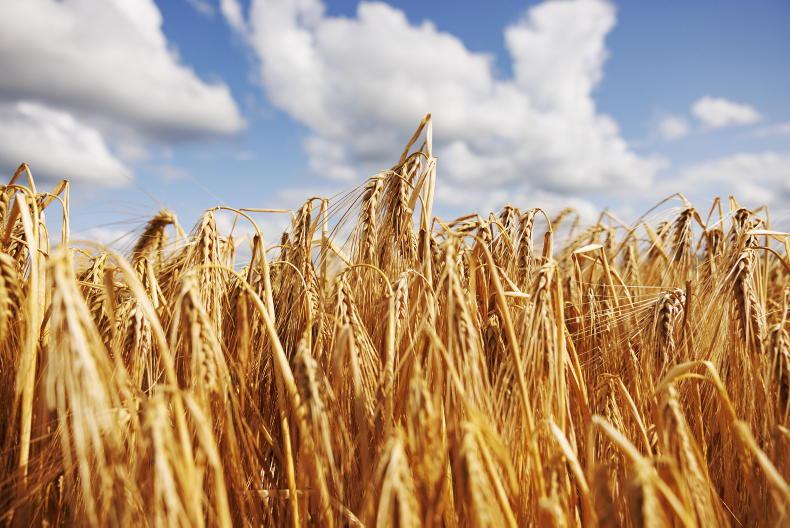
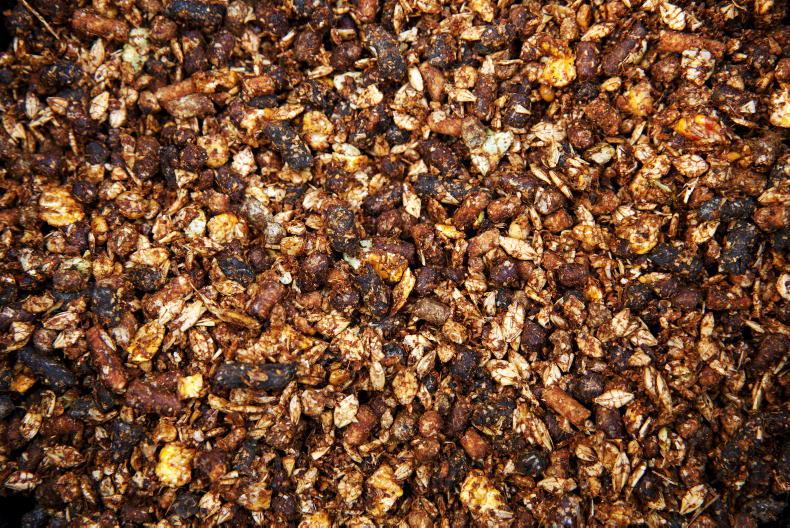
SHARING OPTIONS